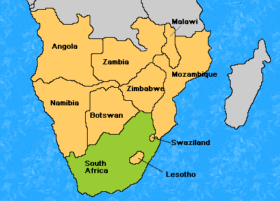This is a brief insight into South Africa’s diverse and vibrant history on March 13, a mosaic formed with strands of success, hardship, and perseverance. As we delve into the past of South Africa, we embark on a voyage through the ages, manoeuvring through the intricacies that have moulded the country we recognize today.

2004: Former Cabinet Minister Dullah Omar dies
Dullah Omar was a South African lawyer and anti-apartheid activist. He joined the United Democratic Front (UDF) in 1983 and became Nelson Mandela’s spokesperson. After the end of apartheid, Omar was appointed as the first Minister of Justice in the new South African government. He later served as Minister of Transport under President Thabo Mbeki. Omar died of cancer on 13 March 2004.
1996: Finance Minister Chris Liebenberg presents his budget
SA finance minister Chris Liebenberg presented a budget to parliament in 1996-97, aiming to reduce the fiscal deficit and provide tax relief to low and middle-income groups. The budget aimed to build on the government’s reputation for fiscal discipline and reported perpetual economic growth of 3.5% in 1995, the highest since 1988.
1994: Lucas Mangope, Bophuthatswana homeland leader is deposed
Lucas Mangope was the President of Bophuthatswana from 1977 until 1994, when he was ousted due to widespread corruption and mismanagement. In March 1994, he called in the Afrikaner Weerstand Beweging (AWB) to support his regime, but the invasion failed and he was removed from power by the South African Government in consultation with the African National Congress (ANC).
1991: ANC members meet with Adriaan Vlok and Gen. Magnus Malan
ANC delegation led by Walter Sisulu met government officials in Cape Town to discuss a possible “third force” involvement in township violence.
1980: Lillian Ngoyi, well-known anti-Apartheid activist, dies
Lilian Ngoyi was an Anti-Apartheid activist and founder member of the African National Congress Women’s League (ANCWL). Born in Pretoria in 1911, she joined the ANC and helped found its women wing. In 1956, Ngoyi led a march against pass laws for women to the Union Buildings and personally handed over the petitions to the Prime Minister. She died on 13 March 1980 at the age of 68 due to a heart condition while living as a restricted person. A street in Pretoria was named in her honor in 2012.
1888: De Beers Consolidated Mines Ltd. is founded to o control diamond production in South Africa
De Beers Consolidated Mines Ltd. was founded in 1888 to control diamond production in South Africa. It merged with Kimberley mines under the Kimberley Central Diamond Mining Company and was managed by Barney Barnato. Diamonds were discovered in 1860 on De Beer’s farm, and two mines were dug on the premises, which were once the world’s most productive diamond mines. In 1871, Cecil John Rhodes bought a claim to the mine at De Beer’s, marking the beginning of his dominance of the diamond mining industry in South Africa. De Beers expanded to include more mines, and Oppenheimer marketed diamonds internationally with the help of the Central Selling Organisation (CSO). Today, the company is the biggest producer and distributor of diamonds in the world.
1701: Native Khoikhoi tribespeople are alleged to have looted more than forty cattle from Cape Settlers
The Cape was home to the Khoikhoi and the San, who were herders and hunters respectively. The arrival of European settlers led to wars, cattle raids, and the subjugation of the Khoikhoi. The settlers enjoyed military superiority and often won, but there were occasional battles over cattle. The Khoikhoi and the San usually lost since they lacked firearms.



